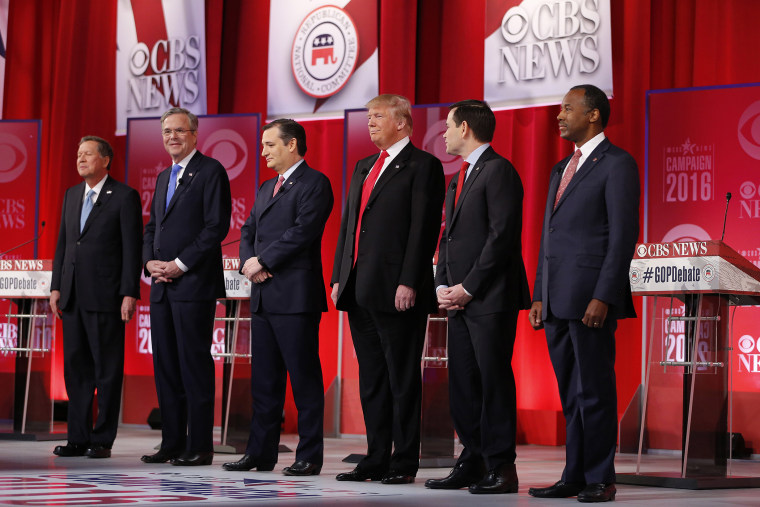Cruz argued that with the field being winnowed, there's a clear path for him to take on the GOP front-runner and that his win in the Iowa caucuses proves he's a viable alternative to the real estate mogul. "History teaches us that no one has ever won the nomination without winning one of the first three primaries. And there are only two people who have won one of the first three primaries," Cruz said in a Las Vegas speech to supporters, referring to his victory in Iowa and Trump's wins in New Hampshire and South Carolina. "And the undeniable reality that the first four states have shown is that the only campaign that has beaten Donald Trump and the only campaign that can beat Donald Trump, is this campaign," Cruz continued.
Putting winnowing theory to the test
It's called "winnowing theory": as the number of non-Trump candidates shrinks, the odds improve that one candidate will consolidate party support. Is that true?

Late last night, as the results from Nevada's Republican caucuses made clear that Donald Trump had won in a landslide, the remaining GOP candidates started taking aim -- at each other.
Marco Rubio's campaign criticized Ted Cruz. John Kasich's campaign criticized Marco Rubio. Ted Cruz said each of his non-Trump rivals should get out of the way in order to make this a two-person race that only he can win.
None of the GOP candidates, however, offered even mild criticism of the Republican who'd just won Nevada by 22 points.
That may sound crazy. As a tactical matter, it may actually be crazy. But it's worth understanding why this keeps happening.
The thinking in Republican circles is that the race will inevitably come down to two candidates, and given the recent results, that means a contest between Trump and a non-Trump alternative.
Indeed, after the South Carolina primary, when the GOP field shrunk to just five people, Republican insiders started feeling renewed optimism about the race because of something known as "winnowing theory": as the number of non-Trump candidates shrinks, the odds improve that one candidate will consolidate party support. If Trump has a ceiling well below 50%, it means his principal rival -- once he has a principal rival -- still stands a credible chance of winning the nomination.
At least, that's the idea. It's why Cruz, Rubio, and Kasich are still criticizing one another -- they each want to be the anti-Trump and desperately want a smaller field of rivals.
In practice, however, winnowing theory has some important flaws. One should be obvious: the field of Republican presidential candidates has already shrunk from 17 people to 5. Trump was the frontrunner before; Trump is still the frontrunner now. Indeed, by all appearances, the New York developer's position has only improved as other candidates have withdrawn from the race.
But that's not the only area of concern. Bloomberg Politics had a terrific report on this a couple of days ago, noting that there's a fair amount of polling that shows GOP support scattering as more candidates exit the 2016 stage. For winnowing theory to work, Trump has to hit a fairly low ceiling, and there's no reason to assume he won't pick up new supporters as his rivals quit. The whole idea of Trump's ceiling has become quite fluid as his support reaches new heights.
The Bloomberg Politics piece concluded, "Taken together, the data suggest that defeating Trump will require weakening his support among Republicans, rather than simply turning the primary into a one-on-one contest with the front-runner."
As of last night, Cruz, Rubio, and Kasich remained resistant to this idea. With Super Tuesday now five days away, it's worth watching to see if they shift strategies.